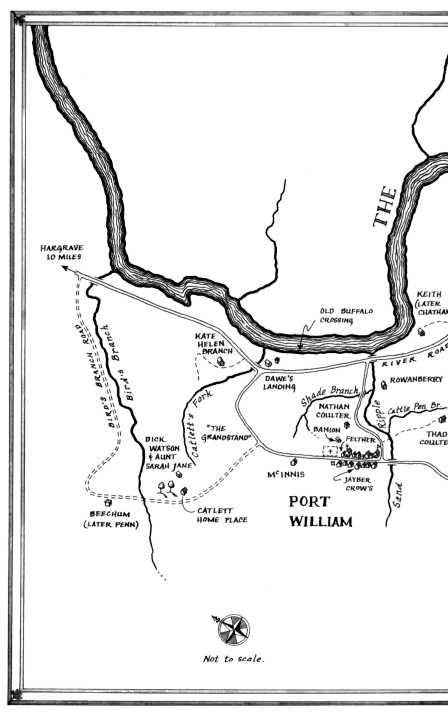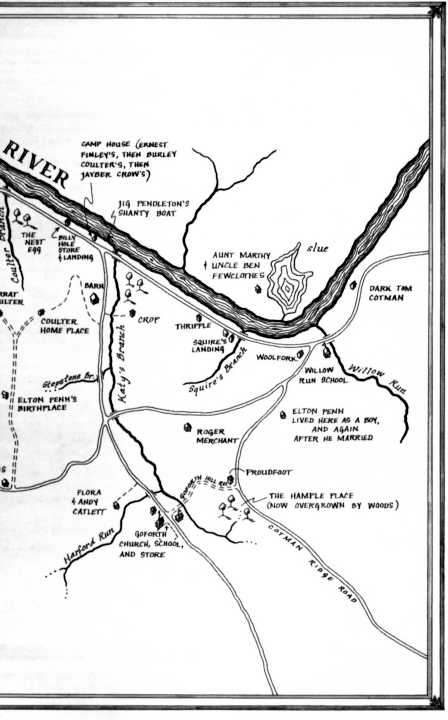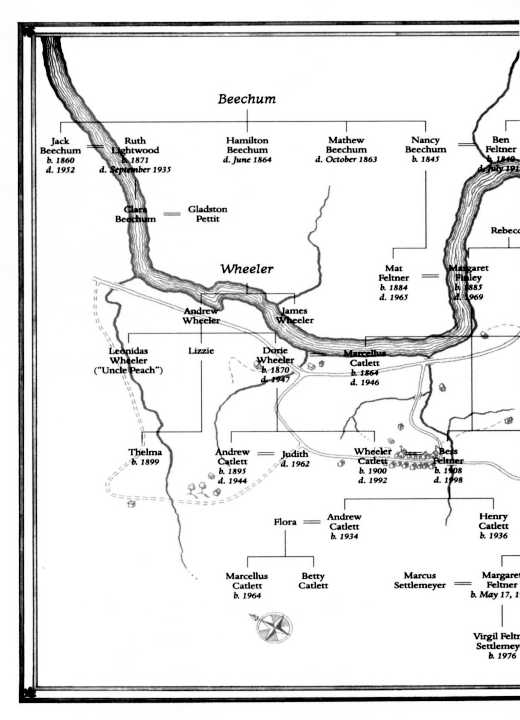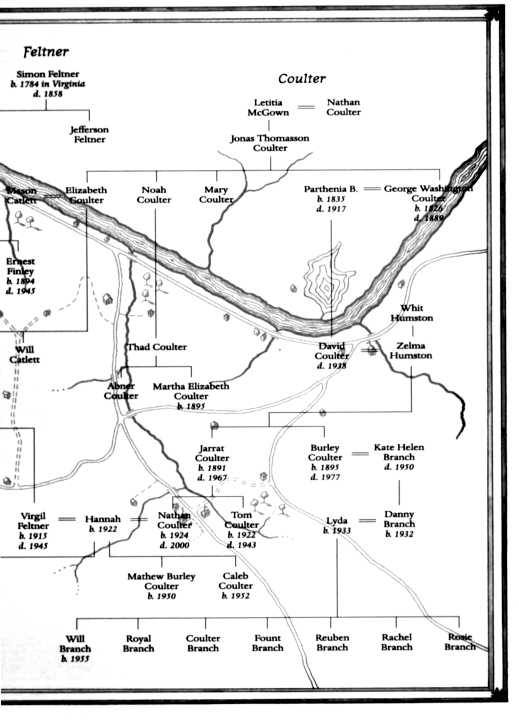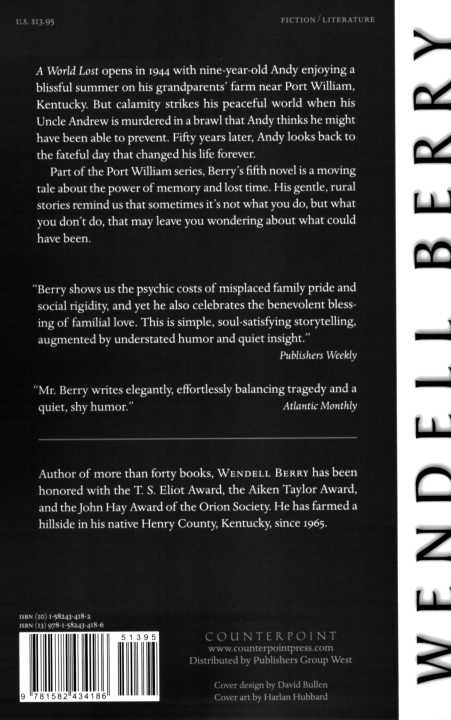A World Lost: A Novel (Port William) (19 page)
Read A World Lost: A Novel (Port William) Online
Authors: Wendell Berry
Now that I have told virtually all I know of the story of Uncle Andrew
and of his death and how we fared afterward, I see that I must return to
my old question - What manner of man was he? - and make peace with
it, for I am by no means certain of the answer. A story, I see, is not a life.
A story must follow a line; the telling must begin and end. A life, on the
contrary, would be impossible to fix in time, for it does not begin within
itself, and it does not end.
Within limits we can know. Within somewhat wider limits we can
imagine. We can extend compassion to the limit of imagination. We can
love, it seems, beyond imagining. But how little we can understand!
Whatever he was, Uncle Andrew was more than I know. In drawing
him toward me again after so long a time, I seem to have summoned, not
into view or into thought, but just within the outmost reach of love,
Uncle Andrew in the plenitude of his being -the man he would have
been for my sake, and for love of us all, had he been capable. In recalling
him as I knew him in mortal time, I have felt his presence as a living soul.
However we may miss and mourn the dead, we really give little deference to death. "Death," a friend of mine said as he approached it himself, "is a convention ... not binding upon anyone but the keepers of
graveyard records." The dead remain in thought as much alive as they
ever were, and yet increased in stature and grown remarkably near. The
older I have got and the better acquainted among the dead, the plainer it
has become to me that I live in the company of immortals.

One by one, the sharers in this mortal damage have borne its burden
out of the present world: Uncle Andrew, Grandpa Catlett, Grandma,
Momma-pie, Aunt Judith, my father, and many more. At times perhaps I
could wish them merely oblivious, and the whole groaning and travailing world at rest in their oblivion. But how can I deny that in my belief
they are risen?
I imagine the dead waking, dazed, into a shadowless light in which
they know themselves altogether for the first time. It is a light that is merciless until they can accept its mercy; by it they are at once condemned
and redeemed. It is Hell until it is Heaven. Seeing themselves in that light,
if they are willing, they see how far they have failed the only justice of
loving one another; it punishes them by their own judgment. And yet, in
suffering that light's awful clarity, in seeing themselves within it, they see
its forgiveness and its beauty, and are consoled. In it they are loved completely, even as they have been, and so are changed into what they could
not have been but what, if they could have imagined it, they would have
wished to be.
That light can come into this world only as love, and love can enter
only by suffering. Not enough light has ever reached us here among the
shadows, and yet I think it has never been entirely absent.
Remembering, I suppose, the best days of my childhood, I used to
think I wanted most of all to be happy - by which I meant to be here and
to be undistracted. If I were here and undistracted, I thought, I would be
at home.
But now I have been here a fair amount of time, and slowly I have
learned that my true home is not just this place but is also that company
of immortals with whom I have lived here day by day. I live in their love,
and I know something of the cost. Sometimes in the darkness of my own
shadow I know that I could not see at all were it not for this old injury of
love and grief, this little flickering lamp that I have watched beside for all
these years.
